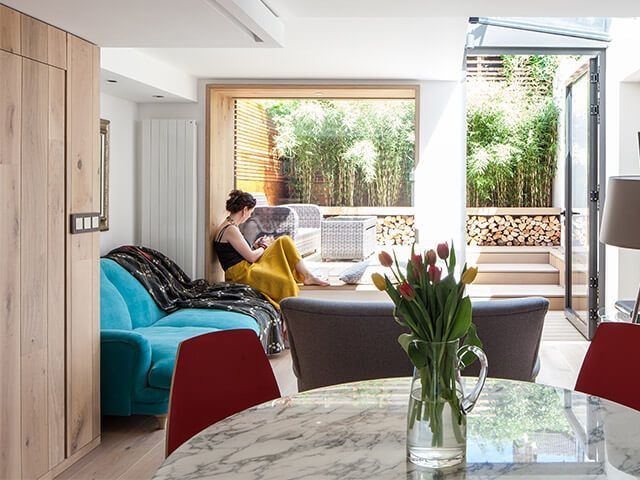
Beat burnout: How to create a stress-free home working environment
Burnout is real. Here’s how to avoid it and de-stress while working from home.

Photo: Adelina Iliev
The World Health Organisation (WHO) recently recognised burnout as an occupational phenomenon – a syndrome caused by chronic workplace stress that results in a person feeling exhausted, cynical about their job and underperforming. Dr Rachael Morris, a GP of 15 years, says: “A lot of people in high pressure jobs think it’s normal to feel stressed, but it’s not. It’s really bad for our health and we need to get over this myth.”
Burnout can happen to anyone, not just to high-flyers or those who dislike their job. Most people experiencing burnout don’t even realise it, so it’s important to check in with yourself and see if you are coping well with work.
Dr Morris says people who are very stressed tend to focus on things they can’t control. Therefore, by focusing on what they can control they can start to bring stress levels down – she calls this the “zone of power”. Working from home is one option people choose in order to minimise stress and maintain a better work-life balance. However, without the right conditions, you can feel just as stressed as being in the office.
Here are a few things you can do to create a comfortable working environment at home, get into your “zone of power” and avoid that burnout feeling…
Get the light right
Access to natural light is one of the most important things to factor in when working from home. Other than the obvious benefits of vitamin D, getting your fill of natural light can reduce the risk of seasonal depression and is even known to give you a more restful sleep at night – both beneficial to your mental health.
Also, the more natural light you get, the less you have to rely on fluorescent lighting which causes eye strain, migraines and even elevated stress levels for some. So, positioning your work station near a window is definitely the best idea. If you find you don’t get enough light in your home, mirrors and using lighter, reflective colours for walls, floors and furnishings help to brighten things up.
Keep in touch
When working from home, it’s easy to shut yourself away completely for days on end. However, it’s important to maintain contact with people, as well as the outdoors. “It’s really difficult to make massive changes, so people can start with small things, like go for a five-minute walk at lunch time or meet a friend for coffee,” says Dr Morris.
Stepping away from your work and working environment really frees up your mind and means when you do come back to it, you’ll have a fresh perspective and be more productive.
Ergonomics are everything
If you’re already experiencing psychological stress from your workload, you don’t want to be putting your body under physical stress as well.
Although it can seem harmless (and even comfortable at first) to slouch over your laptop on the sofa, it can become detrimental over long periods of time. If you have a desk area, then make sure you get an ergonomic chair that helps you maintain good posture. If you’re adamant about working from the sofa, your bed, or just like changing it up throughout the day, then there are special cushions and backrests you can get that you can move around the house with you.
Standing desks and keyboards are just a few other ergonomic options that you can look into to reduce strain and improve well-being while working from home.
Plants mean productivity
Everyone loves placing a succulent or two around the home, but scientific research has shown that plants aren’t just nice to look at. Other than improving the air quality, it has been found that interacting with well-maintained plants in the home reduces stress and anxiety. Artificial plants unfortunately won’t cut it as it’s more about the feel, smell and even the soil which has microbes that work as natural antidepressants.
Studies have also found that house plants can even enhance your creativity and problem-solving skills. So, although getting up and going outside has more benefits, it’s good to have a few plants hanging around to keep your stress levels down and productivity up.




